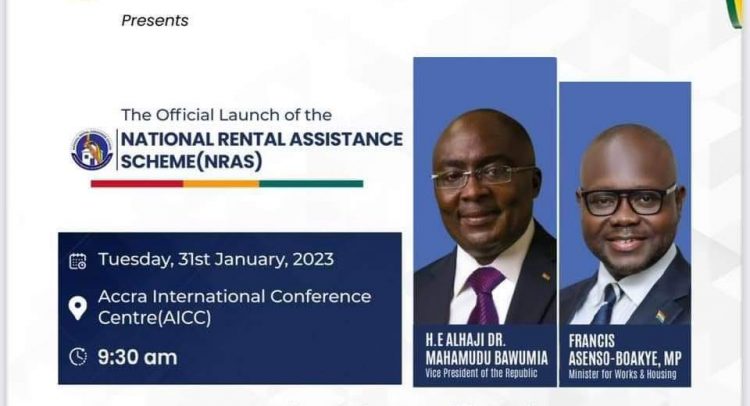Government is set to roll out National Rental Assistance Scheme on Tuesday January 31, 2023 to support lower-income earners to have decent rented accommodation in the country.
The governing New Patriotic Party (NPP) promised in its 2020 manifesto to pay rent advance of Ghanaian youth in the short term cushion them from the problem of high rent and long rent advance.
Vice President Dr.Mahamudu Bawumia who will be launching the Scheme at the Accra International Conference Centre assured Ghanaians that under the National Rent Allowance Scheme, “we will give you a loan to pay your rent allowance, not directly to you but the landlord and then we will deduct monthly as you will normally pay”
NPP also promised to set aside a seed money into a new National Rental Assistance Scheme (NRAS), which it intends to set up to address accommodation problems if its mandate was renewed in 2020.
Over two years into the second term of the administration, many Ghanaians have questioned the commitment of Akufo-Addo-led government to this promise.
Already, speaking at an Infrastructural conference organized by the Ghana Chamber of construction Industry (GhCCI) in Koforidua on behalf of the Sector Minister Francis Asenso Boakye, the deputy minister of Works and Housing Abdulai Abanga assured Ghanaians that, government will soon fulfill this promise with the implementation of the scheme.
“Government intends to implement the National rental assistant scheme to among other things address the market imbalances in the rental housing market, provide assistance to lower-income households to access accommodation whilst leveraging such assistance towards the improvement of the quality of the rental accommodation”.
He said government will continue to deepen engagement with stakeholders to reduce the current housing deficit of 1.8million in the country.
“At the center of all these plans, is the Ghanaian contractor. This nation requires organized group of contractors who are progressive, ready, and fully equipped to embark on the transformational agenda of the government. The Ministry is always engaged with contractors, developers, and other government agencies on how we can collaborate to help reduce the housing deficit which is about 1.8 million housing units”
The Ghana Rent Act of 1963 (as amended) states that a deposit of six months is the maximum that a landlord can request from a tenant. This national rental assistance scheme will embolden landlords to keep charging the two-year advance rent which is illegal in terms of the Rent Act.
The Ghanaian government presents the rental assistance scheme as a way of assisting tenants struggling to pay the advance rent. In reality, it’s a scheme that is dangerous of entrenching a divisive social norm.
By Vincent Kubi


